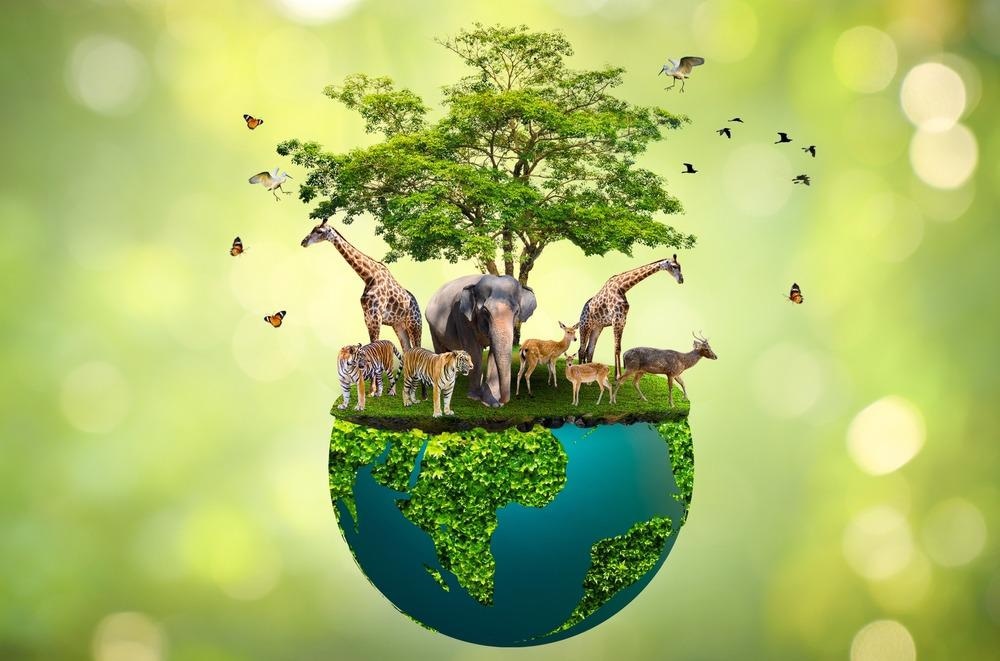


With World Environment Day approaching, World Animal Protection is calling for responsible treatment of all animals, whether in the wild or on commercial wildlife farms. Their recent research has uncovered the cruel conditions in which an estimated 5.5 billion wild animals are being kept, with lack of transparency and inadequate monitoring in the multi-billion-dollar industry. As more and more elephants, bears, and big cats are being bred in captivity for activities like tourism and traditional medicine, the impact on conservation and animal welfare is concerning. The organization urges for stricter enforcement of wildlife trade laws and retirement of elephants used for riding in Amer Fort and Haathi Gaon to wildlife sanctuaries. Additionally, with the focus of World Environment Day 2024 on land restoration and drought resilience, the harmful effects of factory farming on the environment and animal welfare are also emphasized.
Wildlife Exploitation and the Urgent Call for Animal Protection
The alarming plight of wild animals has emerged as a critical concern, prompting organizations like World Animal Protection (WAP) to sound the alarm ahead of World Environment Day.
Unveiling the Cruelty Behind Wildlife Farming
WAP's extensive research has exposed the shocking conditions faced by an estimated 5.5 billion wild animals held in commercial wildlife farms. These animals endure unimaginable suffering, including:
The multi-billion-dollar wildlife farming industry thrives on a lack of transparency and insufficient monitoring, allowing this cruelty to go unchecked.
Conservation and Welfare Concerns
As elephants, bears, and big cats are increasingly bred in captivity for tourism and traditional medicine, the impact on conservation and animal welfare is dire. These animals are often taken from their natural habitats, disrupting their ecosystems and potentially contributing to species decline.
Moreover, the artificial breeding of these species can compromise their genetic diversity, affecting their ability to survive in the wild.
Urgent Action Needed
WAP urges immediate action to address this crisis:
Factory Farming: Environmental and Animal Welfare Impacts
Factory farming, a major contributor to animal suffering and environmental degradation, also falls under the spotlight of World Environment Day 2024. The industrial-scale production of animals for food has severe consequences:
Top 5 FAQs on Animal Welfare and Conservation
Q1: What are the major threats to wildlife conservation? A1: Habitat loss, illegal wildlife trade, and climate change.
Q2: How does factory farming impact the environment? A2: Contributes to water pollution, greenhouse gas emissions, and deforestation.
Q3: What can individuals do to help animals? A3: Support animal welfare organizations, make informed consumer choices, and raise awareness about animal rights.
Q4: What is the role of governments in animal protection? A4: Governments can enforce laws, provide funding, and promote policies that prioritize animal welfare.
Q5: What are the long-term consequences of animal exploitation? A5: Biodiversity loss, compromised ecosystems, and a decline in animal welfare standards.
Call to Action
On World Environment Day and beyond, let us unite to demand responsible treatment of all animals. By promoting conservation initiatives, exposing wildlife exploitation, and advocating for animal welfare, we can create a more compassionate and sustainable world for all.

Indian Prime Minister Narendra Modi celebrated Diwali with Navy personnel on the country's new aircraft carrier, INS Vikrant. He extended Diwali greetings to the nation and shared highlights from his visit, including an air power demonstration and cultural program. PM Modi also addressed the significance of Diwali and expressed his best wishes to the families of the Navy personnel.

In a tense meeting at the White House, President Donald Trump urged Ukrainian President Volodymyr Zelensky to accept Russian President Vladimir Putin's terms for ending the two-year war in Ukraine. Despite seeking more military support from the US, Zelensky was met with resistance from Trump, who reportedly engaged in a "screaming match" with the Ukrainian leader. The US leader even claimed that Putin saw the conflict as a "special operation" rather than a full-fledged war, further complicating negotiations between the two nations.

As Liverpool struggled to find their form in a tough game against Manchester United, Dutch midfielder Cody Gakpo stood out with his sharp attack and strong composure. Despite hitting the woodwork three times, Gakpo managed to score a brilliant equalizer for his team, showcasing his potential and talent on the field. While Liverpool may have lost the match, Gakpo's impressive performance provided a glimmer of hope for a struggling team.

Ayodhya's Deepotsav 2025 was a shining example of faith, community, and innovation as the city set two new world records with over 26 lakh diyas and a grand aarti performed by 2,100 priests. The event, witnessed by Chief Minister Yogi Adityanath, also showcased a spectacular 3D projection mapping and drone light show that brought Lord Ram's story to life in the night sky. The event was a testament to the deep connection Ayodhya's youth have with Lord Ram's ideals and was made possible by the hard work of over 40 potter families and thousands of volunteers.

In a brazen and perfectly orchestrated robbery, a group of thieves infiltrated the world-famous Louvre Museum in Paris on Sunday morning and made off with a collection of priceless jewels with an estimated value in the millions. French officials confirmed the robbery and began a detailed investigation to determine how the culprits managed to evade the museum's advanced security systems and execute the crime in under seven minutes. This latest incident has raised serious concerns about the protection of national treasures at one of the world's most popular tourist destinations.

In an audacious heist, a group of armed thieves breached security at the iconic Louvre Museum in Paris and stole nine valuable jewels from the collection of Napoleon Bonaparte and Empress Joséphine. The robbery, which took place in just seven minutes, has prompted a full-scale police investigation and raised concerns about the museum's security. French officials are working to recover the stolen items, but the Louvre remains closed to visitors.

Despite a ceasefire in early October, the conflict between Israel and Palestine shows no signs of abating, with reports of ongoing deadly clashes and Israeli tank fire targeting a car in Gaza City. The closure of the Rafah border crossing to Egypt, citing Hamas's failure to retrieve bodies, has further exacerbated tensions. However, experts warn of the uncertain future for a transitional government in Gaza and the risk of breaching the fragile ceasefire. The violence and closure highlight the ongoing humanitarian crisis and the need for both sides to engage in peaceful negotiations.

Hundreds of travellers heading to India from Italy for Diwali were left stranded after Air India cancelled its Milan-Delhi flight due to a technical issue. The sudden breakdown of the flight raised concerns about making it home in time for the festival. Some passengers even face the prospect of celebrating Diwali away from home due to rebookings on alternate flights. Air India assured that they are prioritising passenger safety and comfort while providing necessary support to those affected.

On day 1,312 of Russia's war on Ukraine, tensions continue to escalate as Ukrainian drones target a Russian oil pumping station, Russian forces seize three more villages in eastern Ukraine, and NATO increases its presence in the Baltic Sea region. In response to the ongoing conflict, the Ukrainian security service reports that the SBU caused a fire and halted operations in the Chuvashia region, while Russia's military announced its continued advance in Donetsk and Dnipro. Meanwhile, NATO's decision to deploy additional military assets comes after several days of unidentified drone sightings in Denmark and at military bases.

The upcoming India-Australia ODI series has drawn attention for multiple reasons, including the successful return of Rohit Sharma and Virat Kohli as white-ball players. Despite being relieved of captaincy, the duo is expected to continue playing in the format until the 2027 World Cup, according to Australia's Travis Head and India's Axar Patel. As both teams gear up for a high-stakes clash, the focus remains on the future of these two icons and their potential to lead India to another ODI World Cup victory.